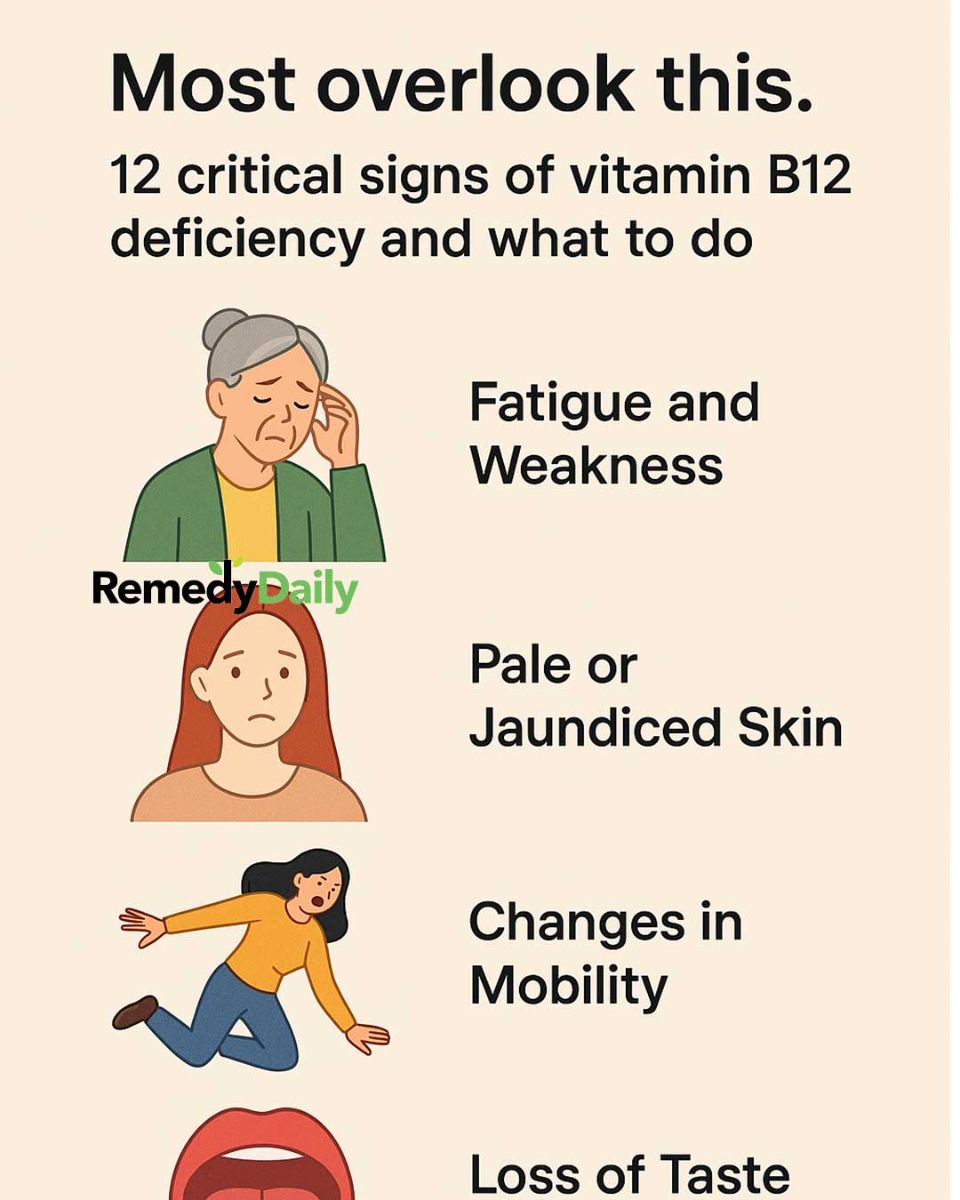Anemia caused by vitamin B12 deficiency can lead to heart palpitations, where the heart beats irregularly or more rapidly than normal. This occurs because the heart works harder to pump oxygen-rich blood throughout the body.
12. Smooth Red Tongue
A smooth, red tongue is another sign of vitamin B12 deficiency. This occurs due to the loss of papillae, the small bumps on the tongue’s surface, which can also lead to a loss of taste sensation.
What to Do If You Suspect a Vitamin B12 Deficiency
If you suspect a vitamin B12 deficiency, it is important to seek medical advice. A healthcare professional can perform a blood test to measure B12 levels and determine if supplementation or dietary changes are necessary. Early intervention can prevent more severe symptoms and long-term health issues.
Dietary Sources of Vitamin B12
Vitamin B12 is naturally found in animal products such as meat, fish, poultry, eggs, and dairy. For vegetarians and vegans, fortified foods like plant-based milk, breakfast cereals, and nutritional yeast can provide B12. It is important to read labels to ensure adequate intake.
Supplementation Options for Vitamin B12
For those unable to obtain sufficient B12 from diet alone, supplements are available in various forms, including oral tablets, sublingual lozenges, and injections. The choice of supplement depends on individual needs and absorption capabilities. Consulting with a healthcare provider can help determine the best option.
When to See a Doctor
If you experience symptoms of vitamin B12 deficiency, it is important to consult a doctor. They can perform tests to confirm the deficiency and recommend appropriate treatment. Regular monitoring may be necessary for individuals with conditions affecting B12 absorption.
Conclusion: Taking Action Against Vitamin B12 Deficiency
Vitamin B12 deficiency is a serious health concern that can lead to a range of symptoms affecting physical and mental well-being. By recognizing the signs and taking proactive steps, such as dietary adjustments and supplementation, individuals can prevent deficiency and maintain optimal health. Early detection and intervention are key to avoiding long-term complications.
